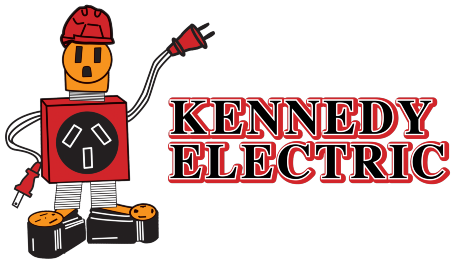Upgrading Barn Electrical Systems for Modern Equipment and Safety
A barn's electrical system is vital to agricultural operations, providing the power needed to run equipment, maintain climate control, and ensure lighting for safe and productive work.
A barn's electrical system is vital to agricultural operations, providing the power needed to run equipment, maintain climate control, and ensure lighting for safe and productive work. As farms increasingly rely on automated systems and high-powered machinery, older wiring, and electrical infrastructure may no longer be sufficient. Upgrading a barn's electrical system helps meet modern demands, prevents safety hazards, and verifies reliable performance across all areas of the property. A well-executed upgrade supports current needs and provides room for future expansion and technological integration.
Enhancing Safety in Agricultural Environments
Barns pose unique challenges for electrical safety. These environments are often subject to dust, moisture, and extreme temperature changes, all of which can accelerate the wear and degradation of electrical components. Animals, equipment movement, and storage practices can also stress electrical systems.
An upgraded barn electrical system must prioritize safety to address these concerns. Ground fault circuit interrupter (GFCI) outlets are fundamental in areas exposed to moisture, such as wash stations, feed prep areas, and stalls. These devices shut off power instantly when detecting a fault, protecting workers and animals from potential electrical shock.
Proper grounding and bonding are also critical in reducing the risk of stray voltage. Stray voltage can cause stress and injury to livestock, particularly in milking parlors and water troughs where animals may contact electrified surfaces. Grounding verifies electrical current follows a controlled path, preventing unexpected shocks.
Weatherproof enclosures for outlets, switches, and junction boxes help shield sensitive components from dust, water, and animal interference. Running wiring through a sealed conduit protects it from rodents, corrosion, and accidental damage. These safety measures contribute to a more resilient and hazard-resistant system that performs reliably in the face of everyday agricultural challenges.
Meeting the Power Demands of Modern Equipment
Today's barns use various electrical equipment, from large-scale ventilation systems to automated feeders and water pumps. These machines demand consistent, high-capacity power delivery. Many older barns were wired for basic lighting and small tools and were not designed to support the heavy load of modern agricultural technology.
Upgrading the electrical panel to accommodate increased capacity is a crucial part of the process. A larger panel with additional breaker spaces allows for the installation of dedicated circuits for each significant piece of equipment. This prevents circuit overload, reduces tripping, and helps isolate problems when they occur.
Proper circuit planning also improves operational efficiency. Strategically placed outlets reduce the need for long extension cords, which pose fire risks and increase resistance in the system. By supplying equipment with reliable power, farmers can maintain uninterrupted workflow, reduce maintenance needs, and maximize productivity across all barn operations.
Energy Efficiency for Long-Term Savings
Energy consumption is a significant cost in agricultural operations. A modernized electrical system designed with efficiency in mind helps lower utility bills while improving performance. Installing energy-efficient lighting such as LED fixtures dramatically reduces power usage while providing bright, clear illumination.
Motion-activated lights and timers reduce unnecessary energy use in low-traffic areas, automatically turning lights off when unnecessary. Programmable thermostats and high-efficiency fans help maintain optimal conditions without constant manual adjustment in temperature-sensitive spaces like poultry houses or nurseries.
Well-planned upgrades also allow for incorporating renewable energy solutions like solar panels, which can help offset costs and reduce reliance on grid power. An energy-efficient barn is more sustainable, cost-effective, and better prepared for evolving utility rates or future energy restrictions.
Weather-Resistant Wiring for Durability
Barns are frequently exposed to weather extremes, including heat, moisture, wind, and UV radiation. Electrical components must be selected and installed with these factors in mind. Using weather-rated, moisture-resistant cables helps prevent deterioration and premature failure.
Wiring exposed to the outdoors or near exterior walls should be UV-resistant to prevent damage from sunlight. Underground wiring, standard in barns spread across larger properties, must be housed in conduit to protect it from soil erosion, water intrusion, and pest activity. Choosing quality materials verifies the system remains dependable for many years, even in harsh conditions and constant use.
Compliance with Electrical Codes and Regulations
Electrical work in agricultural settings must adhere to both national and local electrical codes to ensure safety and legality. These codes dictate everything from wire size and circuit capacity to installation practices and grounding procedures.
Teaming with a licensed electrician is vital to achieving code compliance. Professionals understand the specific requirements for agricultural facilities and ensure that all upgrades are properly permitted, inspected, and documented. Code-compliant systems reduce liability, minimize insurance complications, and help guarantee long-term safety for workers, animals, and property.
Professional Installation for Reliable Performance
Rewiring a barn or upgrading its electrical system is challenging and requires careful planning and precise execution. Hiring a qualified electrician verifies that every component is correctly installed, properly protected, and optimized for the barn's layout and use.
Professional installers assess the current system, plan for future growth, and map out circuits to reduce overload and improve convenience. They also certify all safety features are fully integrated and test the system thoroughly before bringing it online. This attention to detail results in fewer future failures, faster troubleshooting, and better overall reliability.
Investing in a Future-Ready Barn
Upgrading a barn's electrical system is an investment in safety, functionality, and long-term sustainability. As agricultural operations become increasingly dependent on technology, the need for a modern, well-planned power infrastructure grows. From supporting high-powered machinery to enhancing energy efficiency and reducing hazards, a robust electrical system lays the foundation for success.
By working with experienced professionals, farmers and property owners can ensure their barns are equipped to meet today's challenges and tomorrow's opportunities. A future-ready barn powered by a safe, efficient, and durable electrical system leads to better operations, improved safety, and a more productive agricultural environment.
Kennedy Electric is a reliable full-service electrical company serving residential and commercial customers in Citrus, Hernando, and Pasco Counties. We offer electrical repairs, boat lift wiring, remodels, low voltage lighting, generator hookups, RV power, electrical inspections, fan installation, home lighting, new circuits, panels, and more. Call today at 352-799-3434.


